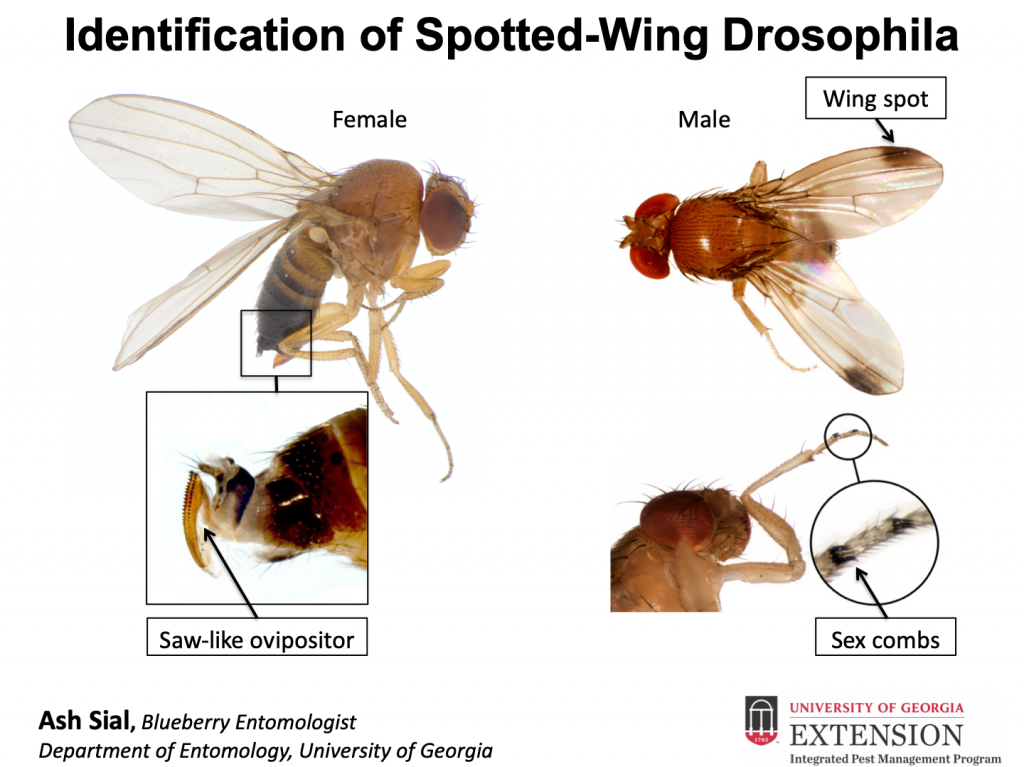Written by: Ashfaq Sial, Associate Professor, Department of Entomology, University of Georgia

Spotted wing drosophila (SWD) control programs should consist of three major components: 1) monitoring and identification, 2) preventative pest management tactics (including exclusion, sanitation, frequent harvest intervals, pruning, mulching, and resistant varieties), and 3) curative pest management tactics such as the judicious use of National Organic Program (NOP) approved insecticides or other responsive pest management tactics.
In the case of SWD, insecticides are typically needed to maintain fruit quality on commercial farms, but organic growers should integrate cultural, physical and biological tactics into their SWD management programs as much as possible to help ensure effective control and prevent insecticide resistance development.
A multi-regional team of researchers led by Dr. Ashfaq Sial, Associate Professor of Entomology at the University of Georgia, has investigated behavioral, cultural, biological and chemical strategies to effectively control SWD in organic production. This team is funded by USDA NIFA through OREI program (Project # 2015-51300-24154 and # 2018-51300-24154).
To learn more about organic management of SWD, visit the Southern Region Small Fruit Consortium blog post: https://ipm.uga.edu/2020/01/29/blueberry-growers-should-scout-early-for-swd-and-manage-before-berry-color-changes/